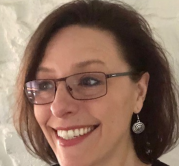Upstreaming financial services

There is a parable used in the healthcare industry that has changed the way I think about serving people. I would like to share this parable, which I heard told by Dr. Rishi Manchanda, the founder of HealthBegins, in a TedTalk called, “What is an Upstreamist in Healthcare?” I think it has huge potential to influence how credit unions approach their membership.
The Parable of the Stream
Three friends approach a stream and hear cries for help. All three friends jump in the stream to save the people. They provide critical help but there were too many people in need of rescue – children, elderly, and families. They could not help them all. They kept coming down the stream, and even with rafts, they could not bring to safety all those that had fallen in the stream.
Two of the friends realize that the third friend is heading the other direction. Her friends ask her where she is going and she tells them that she is heading upstream to find out who or what is throwing these people into the water.
An upstreamist is someone who looks for the root cause to reduce future suffering.
In healthcare, according to Dr. Manchanda, an upstreamist refers to “health care professionals who are equipped to transform their health care system and the social and environmental conditions that make people sick. An upstreamist is someone who is charged with the responsibility in their own health care system to make sure that the practice of medicine—the routine practice of seeing patients, diagnosing them, treating them, referring them for care—includes the routine assessment and treatment of social determinants of health.”
What would it look like for the credit union movement to adopt an upstreamist approach?
By the same definition, it would mean that credit union leaders would transform the financial system and the social and environmental conditions that make people financially unhealthy. The routine practice of seeing members, understanding their financial needs, treating their financial problems, and referring them to the proper financial products and professionals would include an overall financial assessment and deeper dive into the root causes for their poor financial health.
An assessment of the members overall financial health would include:
- Creating a current household budget and a proposed budget that accounts for newly set financial goals.
- Setting financial goals (start/grow an emergency fund, pay down debt, buy a car or home, etc.)
- Reviewing their credit report for areas of improvement and correcting reporting errors.
- Using the budget to calculate the debt-to-income ratio (baseline) and creating a debt reduction plan.
- Looking at retirement goals and assessing a strategy for meeting them.
In 2019, the Financial Health Network reported that only 28% of Americans are financially healthy. Another 55% that are financially coping and 17% that are financially vulnerable. What does it mean to be financially healthy? It means that they are spending, saving, borrowing, and planning in a way that will allow them to be resilient and pursue opportunities over time.
If a credit union was going to be an upstreamist in the financial health movement it would be teaching members the smartest ways to save, spend, borrow, and plan. It would consider itself a partner in these matters. It would start with the new member onboarding process including a financial check-up. This assessment would make it easier to serve all the financial needs of the member because we would know what they are. Then we can help them build a plan to improve their financial health. Just as healthcare upstreamist treat the whole patient, not just the symptoms they complain about, a financial upstreamist will not only approve the post-COVID19 debt consolidation loan that the member is needing but they will also take a deeper look at the whole financial picture to treat what is really ailing the member, poor overall financial health.





